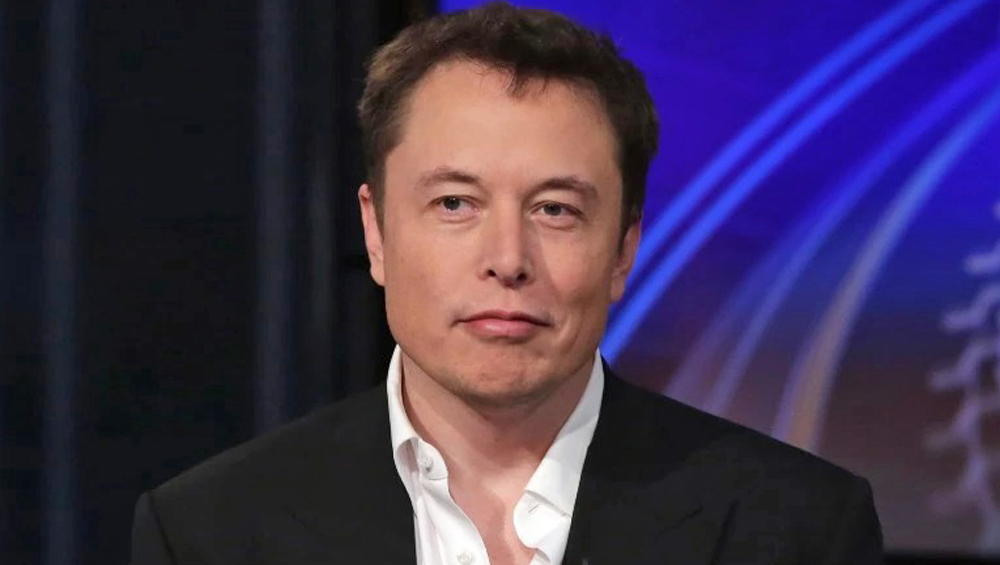
Memo To Musk: Hire A Publisher And Editor For Twitter


Harry Jessell
Elon Musk really should have listened to Al Sikes.
Last spring, after Musk declared his intention to buy Twitter, but before he closed on the deal, the former FCC chairman warned Musk that, despite his big talk about free speech, he’d become a censor and stir up controversy and his other businesses would suffer as a result.
Sikes knows of what he speaks. Too much of his time at the commission during the Bush I administration was consumed with battling shock jock Howard Stern. Sikes felt he had a statutory duty to restrict indecent speech while Stern was making a name for himself by seeing just how indecent he could make radio.
“Suddenly I became one of Stern’s morning show targets including his wishing me dead when I went into the hospital for cancer surgery,” Sikes wrote in his local newspaper column that circulated via Facebook. “While there my wife answered hostile calls from some in his fan base.”
Sikes said Musk could ignore the law that encourages and empowers “good faith” policing of “obscene, lewd, lascivious, filthy, excessively violent, harassing or otherwise objectionable content” or simply decide “not to worry about virulently antisocial speech.
“Either way he would have a minute-by-minute problem because a large majority of Americans care about what is published.”
It’s unlikely that Sikes’ admonition reached Musk or if it had that it would have had an impact. That’s too bad because Musk’s two-month tenure as CEO has been a well-documented disaster that has crushed not only the value of Twitter, but of Tesla as well.
My take is that Musk has made a mess of things because his libertarian and somewhat admirable impulse to give to give voice to all comers is in fundamental conflict with the implicit obligation to police not only obscenity, hate and harassment, but also the flood of misinformation and disinformation that degrades the service and makes advertisers wary.
But there is a way out for Musk, a way that he can remake Twitter into an indispensable forum for civil and productive discourse and a business justifying the $44 billion he paid for it.
He needs to rebuild in the spirit of newspaper publishing. Yes, old media can serve as a model for the new.
Surveying the wreckage of his stewardship, Musk said a couple of weeks ago that he is going to step down as CEO and find someone else to manage the wickedly complex task of deciding who gets heard on the platform and keeping advertisers happy. Good idea.
I suggest that he first hire a publisher in the old-fashioned newspaper sense of the word — someone with experience in balancing business demands against well-honed journalistic values of open-mindedness, fairness and truth seeking.
And that publisher’s first job would be to hire an editor to manage content, not as a censor according to dictates of law or regulation or outside pressure, but in line with those basic journalistic values. The editor would make sure that these values filter down throughout the organization and are embedded in the algorithms designed to automatically eradicate bots and malicious disinformation.
The publisher and editor will have to be tough enough and to tell ownership — Musk — that he is out of line when he tries to interfere inappropriately with content as he just did when he targeted the tweets of journalists, and as he inevitably will again. Musk will still have a voice, but it will be tempered.
This approach would get Musk out of content management business for which he is obviously ill-equipped; it ensures the continued independence of Twitter and puts it in position to assert its full First Amendment rights, by which I mean it puts it in position to resist attempts at regulation. It’s a strong, bold position.
Right now, regulation of social media is a real possibility. Government critics from the left and right (mostly the right) are determined to rein in social media and they have the perfect mechanism for doing it — the so-called Section 230 law that shelters social media from legal liability for defamation and other unlawful content in the posts. The protection is vital to social media. Some lawmakers have already threatened to condition it on social media accepting regulation.
As broadcasters know, such a move would not be unprecedented. From the beginnings of the broadcast medium in the 1920s, the federal government used licensing of radio and TV stations to maintain a measure of control over programming. Station owners ignored lawmakers and FCC bureaucrats at the risk of losing their licenses and their livelihoods. The government took a seat in broadcasting newsrooms 100 years ago and it has never left, even though the medium no longer dominates electronic media.
Independence, full First Amendment rights and journalistic values would fortify Twitter and other social media against government and partisan efforts to unduly influence its editorial judgment through back channels.
Over the past few weeks, pre-Musk Twitter moderators have been accused of burying the Hunter Biden laptop story and in suppressing information that contradicted the federal government’s messaging during the height of the COIVD pandemic. Such things are less likely to happen with a real journalist in charge.
Remember, it’s in the journalist’s DNA to be skeptical of official pronouncements and to challenge them. Good editors see themselves as adversaries of government and an unofficial check on its power, not as its messengers.
The newspaper model is far from perfect. For one thing, the scale is all wrong. It’s one thing to seek balanced news coverage, opinion pieces and letters to the editor for a daily newspaper. It’s another to do on the scale of Twitter where posts flood in at a rate of half a billion a day.
But the same sensibility that goes into to making up a newspaper op-ed page, if applied consistently and faithfully, can over time change the culture of Twitter, making it more civil and truthful without marginalizing fringe thinkers or stripping the service of its snark, humor and simple entertainment value.
The Society of Professional Journalists code of ethics says that journalists should “support the open and civil exchange of views, even views they find repugnant.” This doesn’t mean tolerate crackpot views. Some things are settled: the Holocaust did happen, the planet is warming, Biden did win the 2020 election. If some users disagree, they can find another platform.
When I think of people who might be suited for the top jobs at Twitter I think of recently retired journalists with impeccable credentials like Marty Baron and Dean Baquet. But, given their last jobs — top editors at The Washington Post and The New York Times, respectively — I can see conservatives screaming if they were hired.
So, I will let Musk do his own search. There are many accomplished journalists not only in newspaper publishing, but also in magazines, broadcasting, cable TV and the digital world who could do the job and have the stature and communications skills to sell the merits of the journalistic ethos to Twitter staffers and advertisers and well as to its many critics inside and outside of government.
Musk didn’t listen to Al and look where it got him. Maybe he’ll listen to me.
Harry A. Jessell is editor at large of TVNewsCheck. He can be contacted here. You can read earlier columns here.
































Comments (1)
tvn-member-2352786 says:
December 29, 2022 at 4:33 pm
Harry’s advice to Elon Musk makes a lot of sense especially since he recommends hiring a Publisher who will then hire an editor. In my view I think many media companies made a mistake putting people in the role of Editor/Publisher. These are two distinctly different jobs. And it doesn’t make sense to have someone who is writing about a company also asking them for ad dollars. Having a Publisher and an editor
running Twitter provides a good source of
checks and balances which would position the company well for the future.